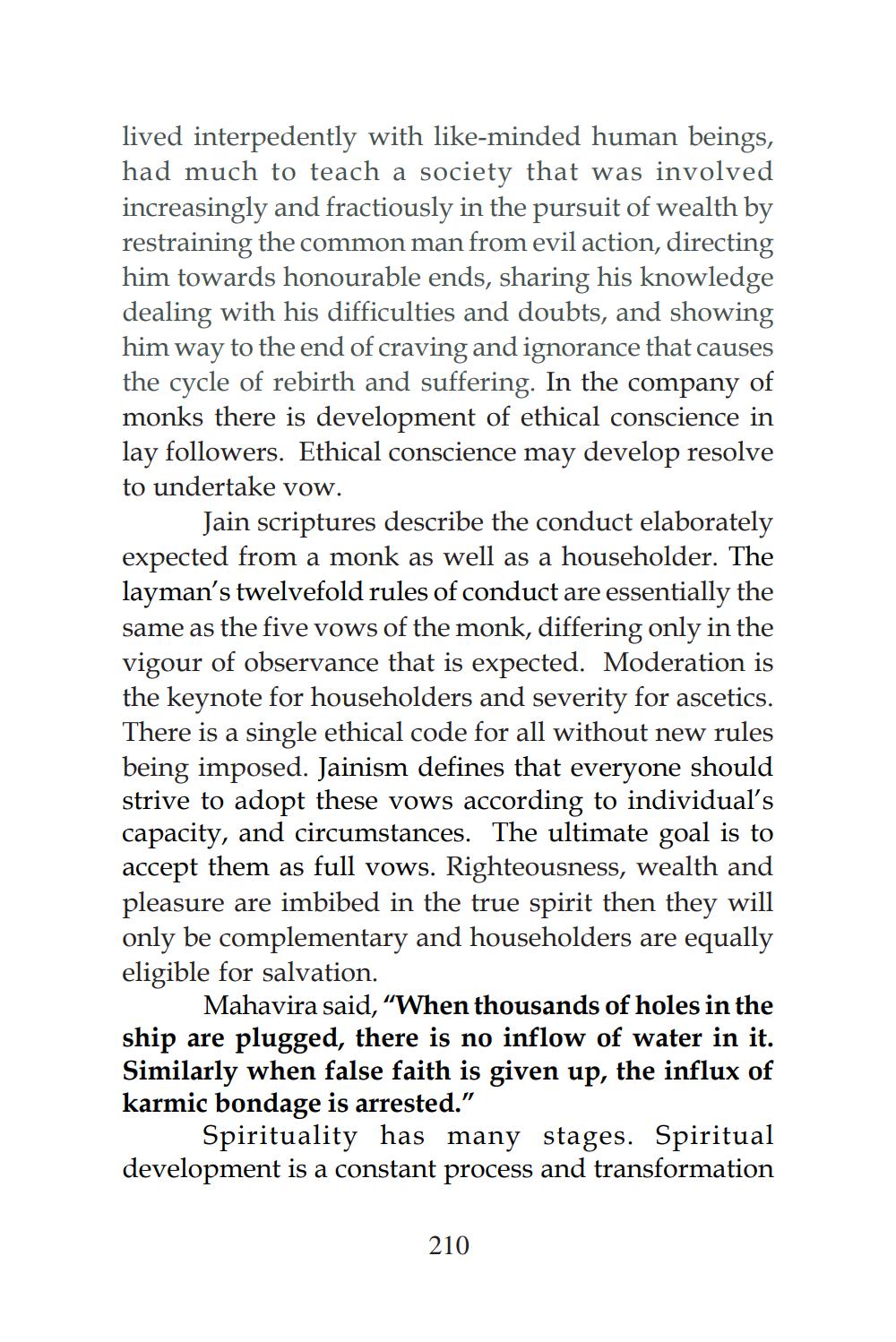________________
lived interpedently with like-minded human beings, had much to teach a society that was involved increasingly and fractiously in the pursuit of wealth by restraining the common man from evil action, directing him towards honourable ends, sharing his knowledge dealing with his difficulties and doubts, and showing him way to the end of craving and ignorance that causes the cycle of rebirth and suffering. In the company of monks there is development of ethical conscience in lay followers. Ethical conscience may develop resolve to undertake vow.
Jain scriptures describe the conduct elaborately expected from a monk as well as a householder. The layman's twelvefold rules of conduct are essentially the same as the five vows of the monk, differing only in the vigour of observance that is expected. Moderation is the keynote for householders and severity for ascetics. There is a single ethical code for all without new rules being imposed. Jainism defines that everyone should strive to adopt these vows according to individual's capacity, and circumstances. The ultimate goal is to accept them as full vows. Righteousness, wealth and pleasure are imbibed in the true spirit then they will only be complementary and householders are equally eligible for salvation.
Mahavira said, “When thousands of holes in the ship are plugged, there is no inflow of water in it. Similarly when false faith is given up, the influx of karmic bondage is arrested."
Spirituality has many stages. Spiritual development is a constant process and transformation
210




